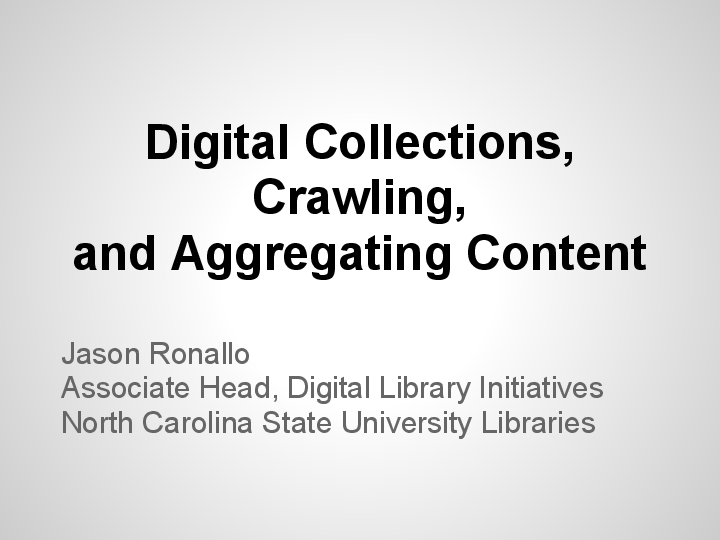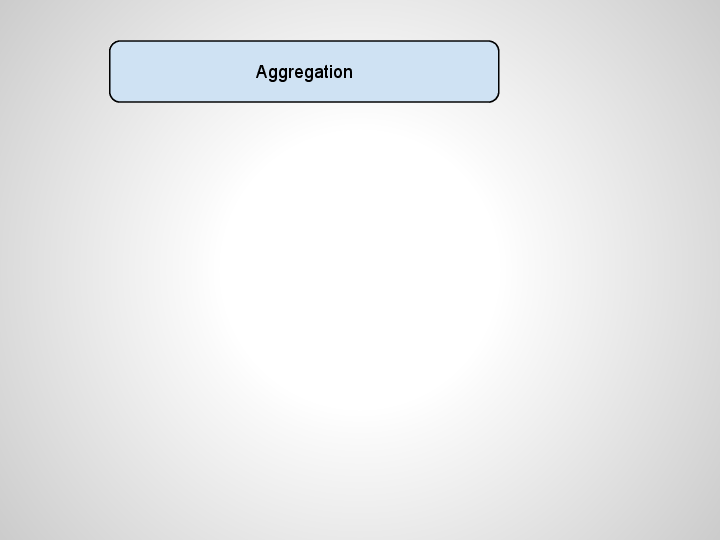Preliminary Inventory of Digital Collections
Incomplete thoughts on digital libraries.
Page 6 of 7
Library Catalog Pages Ranking in Search Engines
Feb 26, 2012
Recently there was a thread on the code4lib list about local catalog records showing up in results in the search engines like Google, Bing, and Yahoo!. The anecdotal evidence is that Google is actively crawling and indexing library catalogs like Johns Hopkins’.
Some of the discussion has revolved around how useful this local catalog data is to folks coming from search engines. How many of these users are satisfied with coming to a local library catalog? I think many people will be unsatisfied because they have found something interesting that they cannot access. Much of what academic libraries have is only available to their own students, faculty, and staff or to other institutions through inter-library loan. This situation may be improving for users.
read moreSufficient Metadata and the Open Web
Feb 16, 2012
Recently on the Code4Lib list Patrick Berry asked the question:
When do you know you have enough metadata?
I think this is an interesting question, so thought I would try to provide a longer response in the form of some notes.
read moreDigital Collections, Crawling, and Aggregating Content
Feb 8, 2012
Code4Lib 2012 Lightning Talk That Wasn’t
Lightning talks filled up fast this year at Code4Lib before I had a chance to sign up, which is probably for the best since I had already had the opportunity to give a full length talk. Here is the lightning talk that I had prepared with each slide being followed by my draft speaker notes.

Hi.

Digital Libraries have aspired to create the one big pot of digital library stuff to hold everything. For the most part we’ve used niche protocols, dumbed-down metadata, cumbersome workflows, and lots of time massaging metadata in an effort to achieve these big aggregations.
I want to talk about what I think is better way to do aggregations. There’s a lot more you can build with what I’m talking about, but I want to set aggregations in my sights.
read moreSlides from Code4lib Presentation on HTML5 Microdata and Schema.org
Feb 7, 2012
Update: You can find the video on Livestream at 01:05:30.
Here are my slides from slides from my Code4Lib 2012 presentation on HTML5 Microdata and Schema.org. If you want the speaker notes, please dm me on Twitter @ronallo.
read moreCommon Crawl, Web Data Commons, and Microdata
Jan 30, 2012
The other day I discovered the Web Data Commons, which is building on top of the Common Crawl to extract Microformat, Microdata, and RDFa data and make it available for free download. This means that there is starting to be free structured data from a big portion of the Web available for for anyone to play with at very low cost. Common Crawl takes care of the crawling and then Web Data Commons will do data extraction. This opens up new possibilities for services, specialized search, and aggregations of content. Big web data is being opened up for small startups and individuals.
read morePage 6 of 7